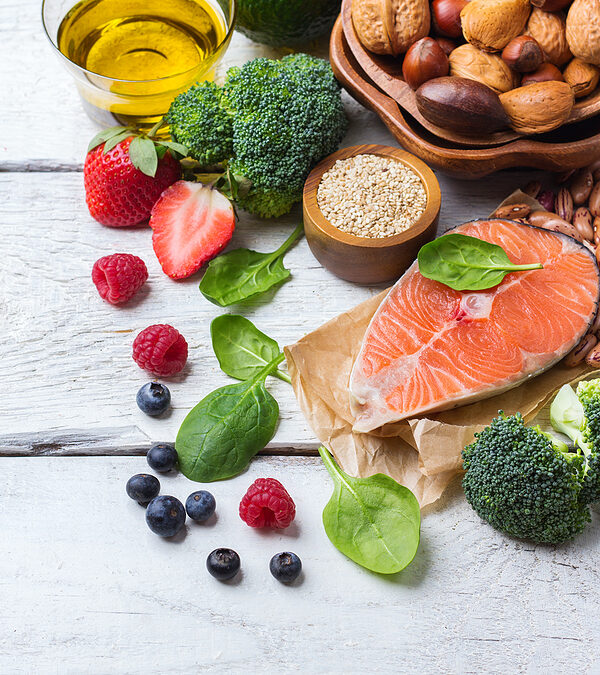Generally speaking, inflammation is your body’s signal that there is a problem – injury, invading virus, foreign bacteria, exposure to harmful chemicals or allergens, etc. If you have an autoimmune illness, however, inflammation can come from your immune system’s inability to distinguish between foreign cells like disease and your body’s healthy cells. When your immune system attacks your body, pain and chronic inflammation of your muscles, joints, and organs can often be the result.
Although there are currently no known cures for autoimmune and chronic conditions like lupus, rheumatoid arthritis, gout, psoriatic arthritis, and others, you can help your body fight against inflammation by eating certain foods that are known to be anti-inflammatory and avoiding other foods that tend to cause or increase inflammation.
Anti-inflammatory foods to incorporate into your diet
Foods that are high in antioxidants and polyphenols, or protective compounds found in many plants, tend to reduce levels of inflammation in the body naturally. Five of the best foods to include in your anti-inflammatory diet are:
- Berries – especially strawberries, blackberries, and blueberries. In addition to important vitamins and minerals like potassium, vitamin C, magnesium, and fiber, berries are high in antioxidants and anthocyanins. Tomatoes, which are botanically categorized as berries, are another great source of helpful antioxidants. Eating fresh or frozen berries can also help you curb your sugar cravings, which is helpful since processed sugar is inflammatory.
- Nuts – especially almonds and walnuts. Fiber, magnesium, and zinc can be found in many nuts, and Vitamin E and Omega-3 fatty acids all have anti-inflammatory properties.
- Dark, leafy greens – especially kale, broccoli, and spinach. These foods rich in Vitamins E and C help protect your body with anti-inflammatory and antioxidant phytonutrients.
- Fatty fish – especially salmon and tuna- have high levels of Omega-3 fatty acids and vitamin D.
- Olive oil – especially extra virgin olive oil. Rather than margarine or lard, which are heavily processed, cook with olive oil for a dose of heart-healthy fats and oleocanthal, which shares characteristics with non-steroidal, anti-inflammatory medication like ibuprofen.
Foods to avoid
On the flip side foods with anti-inflammatory effects are the ones that can significantly increase your body’s levels of inflammation. As a general rule, you should avoid or at least try to limit your intake of:
- Processed sugar, including sweetened beverages like soda
- Refined carbohydrates like white bread
- Fried and fatty foods
- Processed meat like hot dogs or deli meat
Aiming for a healthy diet overall, rather than thinking of foods as “good” or “bad” can not only help you deal with inflammation but can also elevate your mood and general health. A Mediterranean diet incorporates many of the beneficial foods listed above.
We can help you develop a treatment plan
If you are struggling with chronic inflammation due to an autoimmune, musculoskeletal illness, we are here to help. At Advanced Rheumatology of Houston, we are dedicated to providing relief for those suffering from rheumatologic conditions like polymyalgia rheumatica, vasculitis, osteoarthritis, spondyloarthritis, and others. Call us today at (281) 766-7886 to schedule an appointment with one of our team of experts to discuss your symptoms and develop a treatment plan that works for you. A better quality of life is possible!



